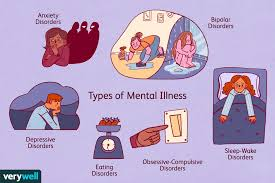A nurse is caring for a client diagnosed with a mental illness. Which of the following actions by the nurse demonstrates the ethical concept of autonomy?
Supporting the client's wish to refuse prescribed medications.
Making sure the client understands expectations for client participation.
Explaining unit rules and policies regarding unacceptable behaviors.
Encouraging client feedback about satisfaction with the facility experience.
Calmly speaking the client's name out of the car window may seem like a non-threatening action, but it involves direct engagement with the client while he is holding a weapon. This could put the nurse at risk if the client reacts unpredictably or feels threatened.
The Correct Answer is A
Choice A Reason:
Supporting the client's wish to refuse prescribed medications is a direct demonstration of respecting the client's autonomy. Autonomy in nursing is the right to self-determination, where patients are provided with adequate information to make their own decisions based on their beliefs and values. By supporting the client's decision, the nurse acknowledges the client's capacity to make informed choices about their own health care, even if the choice is different from what the medical team suggests.
Choice B Reason:
Ensuring that the client understands expectations for participation is more about informed consent and education rather than autonomy. While it is related to autonomy, it does not directly demonstrate the ethical concept since it does not involve a decision made by the client.
Choice C Reason:
Explaining unit rules and policies about unacceptable behaviors is part of the education process and setting boundaries within the healthcare environment. This action is necessary for all clients but does not specifically address the client's autonomy in making personal health decisions.
Choice D Reason:
Encouraging client feedback about satisfaction with the facility experience is a way to involve clients in the evaluation process of the facility's services. While this can be seen as respecting the client's opinions, it is not a direct action of supporting the client's autonomous decisions regarding their treatment plan

Nursing Test Bank
Naxlex Comprehensive Predictor Exams
Related Questions
Correct Answer is D
Explanation
Choice A reason:
An unwillingness to accept that treatment is needed is not, by itself, a condition that can legally justify extending a hospital hold beyond the initial 72 hours. Treatment refusal can be a complex issue and may require a deeper understanding of the client's capacity to make informed decisions.
Choice B reason:
The client's intention to move out of the state does not constitute a legal basis for extending a hospital hold. The focus of continued hospitalization would be on immediate safety concerns rather than future living arrangements.
Choice C reason:
Disliking a neighbor is not a condition that warrants an extended hospital hold. Personal feelings or disputes do not equate to a risk that justifies involuntary hospitalization.
Choice D reason:
If the client poses a danger to themselves or others, this is a condition under which the hospital can legally extend the hold beyond 72 hours. The primary concern is the safety of the client and those around them, and if there is a risk of harm, the client may be held involuntarily until it is deemed safe for them to be discharged.
Correct Answer is C
Explanation
Choice A Reason:
Universality refers to the realization among group members that they are not alone in their experiences or feelings. While the interaction does show a shared experience, the primary factor demonstrated here is not just the commonality of experience but the encouragement and hope it provides.
Choice B Reason:
Imitative Behavior involves group members learning from each other by observing and copying behaviors. In this scenario, while the member who has been sober for 7 years may serve as a role model, the key element in this interaction is the hope conveyed through sharing personal success.
Choice C Reason:
Instillation of Hope is the encouragement that recovery is possible. The member's statement about overcoming multiple relapses and achieving long-term sobriety serves as a powerful testament to the possibility of recovery, thus instilling hope in others.
Choice D Reason:
Altruism is the unselfish concern for the welfare of others, which can be a byproduct of group therapy as members support each other. However, the primary factor at play in this scenario is the provision of hope rather than the act of giving support.
Whether you are a student looking to ace your exams or a practicing nurse seeking to enhance your expertise , our nursing education contents will empower you with the confidence and competence to make a difference in the lives of patients and become a respected leader in the healthcare field.
Visit Naxlex, invest in your future and unlock endless possibilities with our unparalleled nursing education contents today
Report Wrong Answer on the Current Question
Do you disagree with the answer? If yes, what is your expected answer? Explain.
Kindly be descriptive with the issue you are facing.
